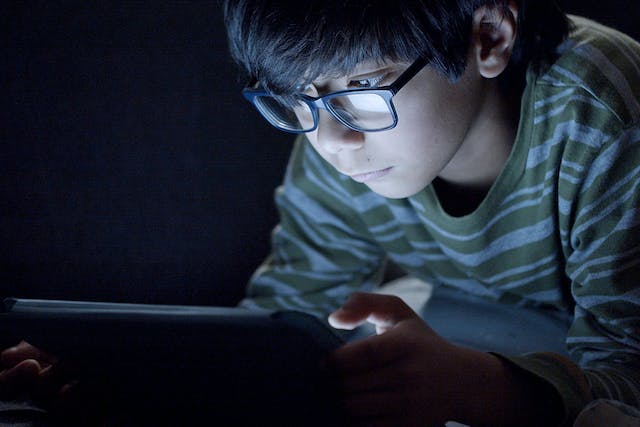In today’s digital age, children are growing up surrounded by screens.
From smartphones and tablets to computers and televisions, screens have become an
integral part of daily life.
While technology offers numerous benefits, excessive screen time can pose significant
risks to children’s physical and mental well-being.
Understanding these impacts and implementing effective mitigation strategies is crucial for
parents in nurturing healthy development.
Physical Well-being
Excessive screen time can adversely affect a child’s physical health in several ways:
Sedentary Lifestyle:
Prolonged screen time often leads to a sedentary lifestyle, reducing physical activity Lack
of exercise contributes to obesity, cardiovascular issues, and muscular problems.
Poor Posture:
Hours spent hunchedover screens can lead to poor posture and musculoskeletal issues,
including neck and back
SleepDisruption:
Screen exposure, particularly before bedtime, disrupts sleep patterns due to the
suppression of melatonin production. Inadequate sleep affects mood, cognitive function,
and overall health.
Mental Well-being
The mental well-being of children is also vulnerable to the
effects of excessive screen time:
Decreased Social Interaction:
Excessive screen time can replace face-to-face interactions, hindering the development of
crucial social skills and leading to feelings of isolation and loneliness.
CognitiveDevelopment:
Excessive screen time, especially on passive entertainment platforms, can impede
cognitive development and attention span, affecting academic performance and critical
thinking skills.
Emotional Regulation:
Exposure toscreens, particularly to violent or inappropriate content, can disrupt emotional
regulation and increase the risk of anxiety, depression, and aggressive
Mitigation Strategies for Parents
To mitigate the adverse effects of excessive screen time, parents can adopt proactive measures:
Set Limits:
Establish clear guidelinesregarding screen time duration and content appropriateness
based on age and developmental stage.
Encourage a balanced lifestyle that includes physical activity, social interaction, and
creative
Lead by Example:
Model healthyscreen habits by limiting your own screen time and engaging in offline
activities with your Be mindful of your digital usage and prioritize meaningful interactions.
CreateTech-Free Zones:
Designate certain areas in the house, such as the dining table and bedrooms, as tech-free
zones to promote family bonding and uninterrupted sleep.
Encourage Alternative Activities:
Encourage your child to explore diverse interests such as sports, arts, and hobbies that
promote creativity, critical thinking, and social interaction.
Monitor Content:
Supervise yourchild’s online activities and educate them about responsible digital
citizenship.
Use parental control tools to filter inappropriate content and promote safe browsing habits.
Establish Consistent Routines:
Maintain consistent routines for sleep, meals, and screen time to provide structure and
stability for your child’s overall well-being.
In conclusion,
Excessive screen time can have profound implications for children’s physical and mental
health.
By understanding the risks and implementing effective mitigation strategies, parents can
foster a healthy balance between technology use and offline activities, nurturing
their child’s holistic development in today’s digital world.











